Dmitrov is one of the ancient cities of the Moscow region: it is only 7 years younger than the capital. The construction of the Moscow Canal made the city also a port. So you can travel here by water. The Great Patriotic War left its mark on the history of Dmitrov. On Peremilovskaya height in its vicinity in 1941 there were battles. Their outcome prevented the Nazis from attacking Moscow directly. This feat is marked by the inclusion of Dmitrov in the number of cities of military glory.
The main attractions are the Kremlin and numerous Orthodox objects. Some churches were not closed even in Soviet times and were able to preserve their unique relics. The Dmitrovsky Kremlin has become a museum-reserve, and its exhibits cover an impressive period of time and fully tell about the history and culture of the region.
What to see and where to go in Dmitrov?
The most interesting and beautiful places for walking. Photos and a short description.
- Dmitrovsky Kremlin
- Assumption Cathedral
- Soviet square
- Monument to Yuri Dolgoruky
- Kropotkinskaya street
- Local Lore Museum of Dmitrovsky Krai
- House-Museum of P. A. Kropotkin
- Theater Big Nest
- Borisoglebsky Monastery
- Monument to Saints Boris and Gleb
- Kazan church
- Vvedenskaya Church
- Trinity Church
- Sretenskaya Church
- Nikolo-Peshnoshsky Monastery
- Railway station building
- Birch Grove Park
- Peremilovskaya height (Yakhroma)
- Ski resort Sorochany
- Moscow Channel
Dmitrovsky Kremlin
Recognized as a historical monument of the XII century. It was the residence of local princes. Not long in different periods was in the possession of the Poles and Lithuanians. Each of the objects preserved on the territory of the Kremlin is an independent attraction. The Assumption Cathedral and the earthen rampart stand out in particular. The length of the latter is 980 meters. The main entrance to the Kremlin is the Nikolsky Gate, recreated in our time.
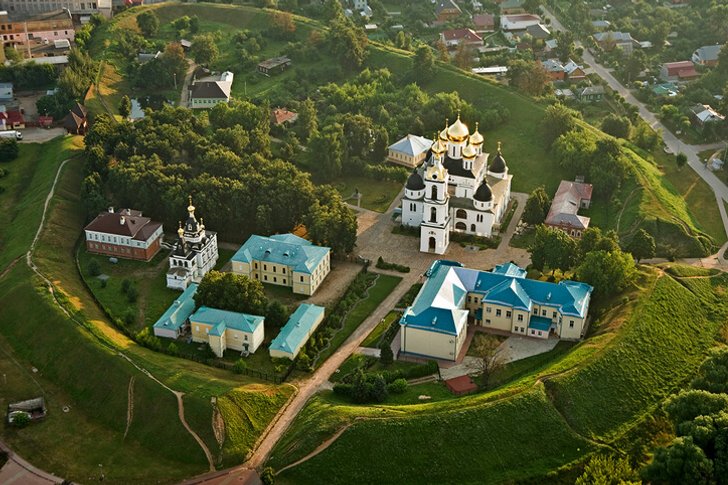
Assumption Cathedral
Built in the early years of the 16th century. The architecture of the cathedral shows the influence of the Italian style. Presumably, craftsmen from Europe could have been involved in the project. Several restorations have changed the original appearance of the temple. The most significant changes took place in the 19th century. After the Bolsheviks came to power, the spire and bells were destroyed. The painted walls, as well as the iconostasis of the 17th century, miraculously survived.
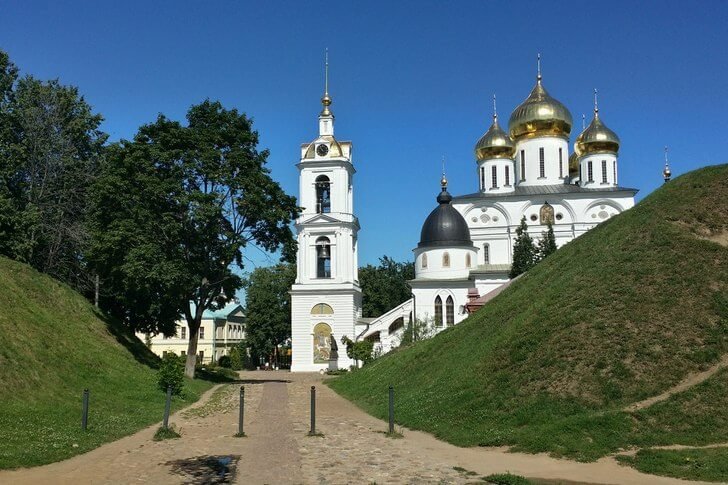
Soviet square
Located in front of the Kremlin. In the past it was called Upper and Revolution Square. It became Soviet in the 20s of the last century. Several fountains have been installed, operating in the summer. Nearby is a walking alley, along which commercial buildings and cafes stretch. Mass cultural events are held on the square. These days there is an assembly scene. The territory was restored in 2004 for the anniversary of the city.
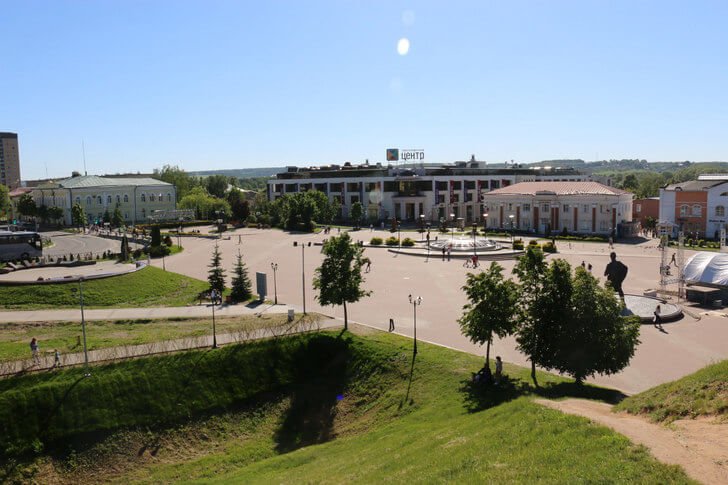
Monument to Yuri Dolgoruky
Installed on Sovietskaya Square. Yuri Dolgoruky founded the city. The sculpture is dated 2001. Dolgoruky stands with his back to the entrance to the territory of the Kremlin. On the opposite side of the square since 1950 there is a monument to Lenin. The leader of the world proletariat and the prince point to each other. This funny coincidence has given rise to many interpretations of the gesture and jokes among the locals.
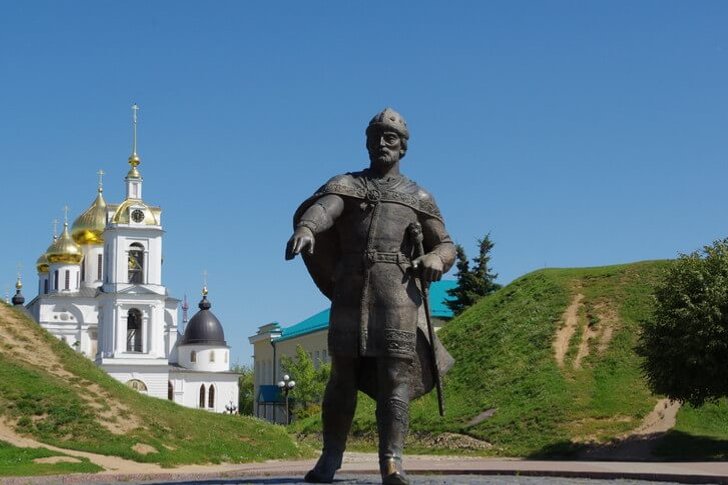
Kropotkinskaya street
Located near the Kremlin. Named after the explorer and anarchist Peter Kropotkin. The street is famous primarily for its sculptures. Installation time - 2003. The style of all the figures is the same, and they depict representatives of different classes and even centuries. On Kropotkinskaya there is a gardener with a cat, strolling nobles, a merchant and a merchant's wife, a teacher and other colorful characters.
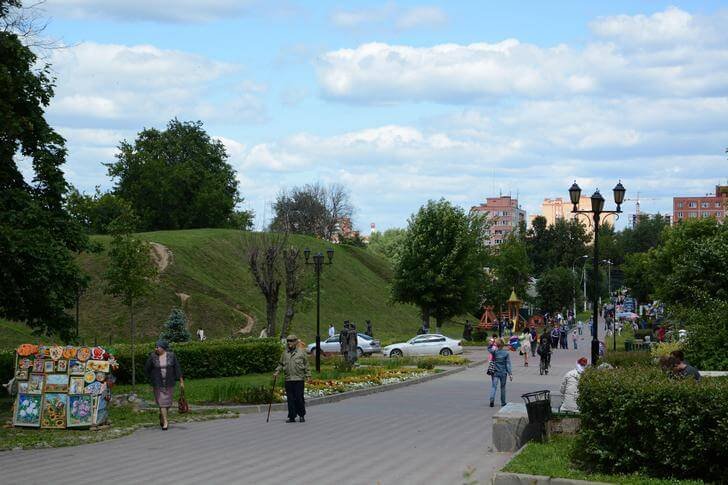
Local Lore Museum of Dmitrovsky Krai
The museum-reserve was opened in 1918. It is partially located on the territory of the Dmitrovsky Kremlin and bears the corresponding name. In total, 12 buildings are included in the single structure of the museum. Funds - 40 thousand units of storage. Among the exhibits: icons, oil painting, graphics, porcelain, furniture, weapons. The museum and exhibition complex was put into operation in 2004. The permanent exhibition tells about Dmitrov from the 18th century to the present day.
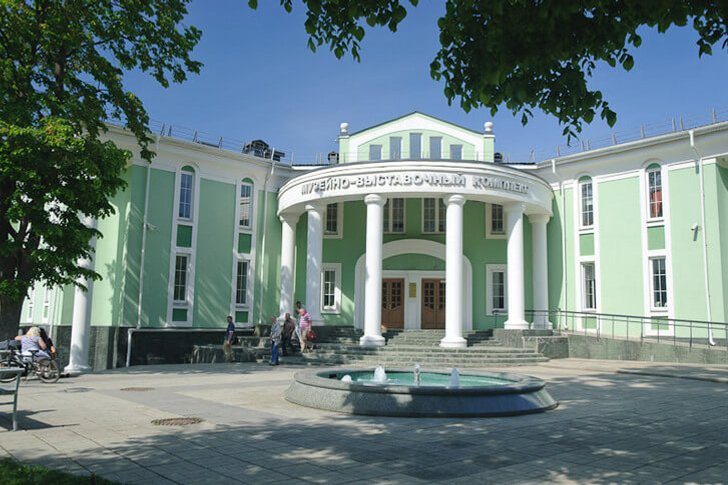
House-Museum of P. A. Kropotkin
Branch of the Dmitrovsky Kremlin. The researcher and anarchist Pyotr Kropotkin spent the last years of his life in this house. The mansion has an attic. The rooms recreate the atmosphere of the beginning of the last century. The collection is divided into several expositions. One of the exhibitions is dedicated to Count Olsufiev, who previously owned the house. The decision to create a museum was made in 1991, and it received its first visitors only in 2014.
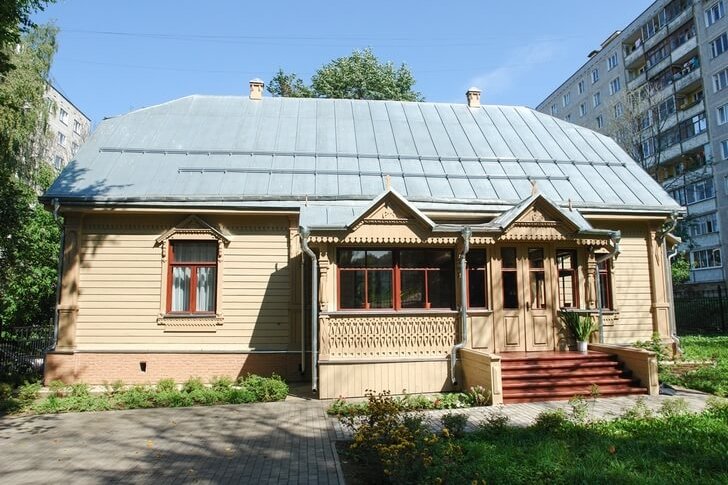
Theater "Big Nest"
In 1967, a creative team was created. It remained an amateur theater until 1991. When receiving a new status, the "Big Nest" acquired a room in the regional Palace of Culture. The troupe is small - only 14 professional actors. The repertoire is a classic, but in interpretation. Performances are staged for young viewers. The theater participates in major festivals and shows.
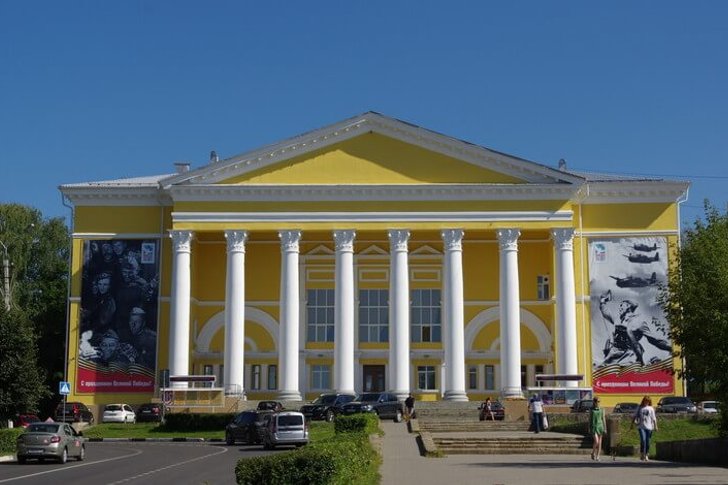
Borisoglebsky Monastery
There is no exact date of foundation, although the monastery is mentioned in chronicles from the 15th century. There is a version that the monastery was founded by Yuri Dolgoruky. On the territory, in addition to the Cathedral of Boris and Gleb, there is a chapel, monastic cells, St. Nicholas Church, a refectory. Old buildings are adjacent to modern ones. The main relic is a particle of the Holy Cross. Because of it, thousands of pilgrims come here every year.
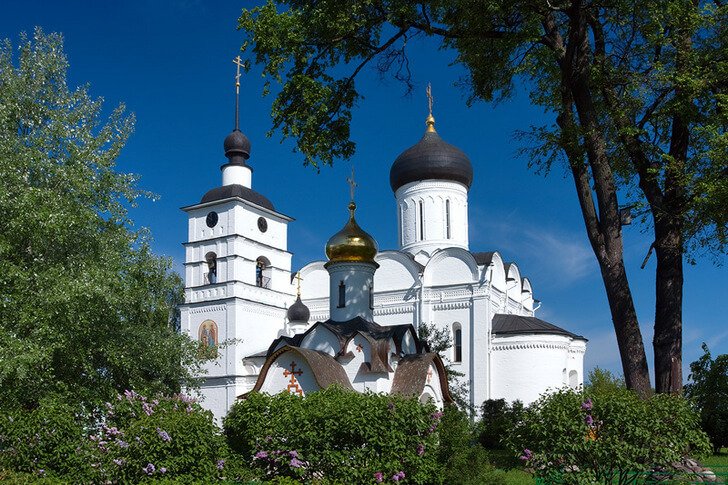
Monument to Saints Boris and Gleb
In 2006, the grand opening of the monument took place. Its creation was timed to coincide with the anniversary of the monastery, which bears the name of these two saints. Sculptor A. Rukovishnikov decided to depict Boris and Gleb in military attire to emphasize their contribution to the defense of their native lands. The pedestal has an unusual shape. The "roof-arc" stands out in particular. Bronze figures on horseback were consecrated by representatives of the Russian Orthodox Church.

Kazan church
The year of foundation is 1644. A century later, a new temple appeared on this site. Subsequently, a chapel was built nearby, as well as the warm limit of the Joy of All Who Sorrow icon. The main relic is a copy of the Life-Giving Cross of the Lord. During the Soviet period, the church was not closed and was not subjected to persecution or encroachment on values. The church has an Orthodox library and a Sunday school.
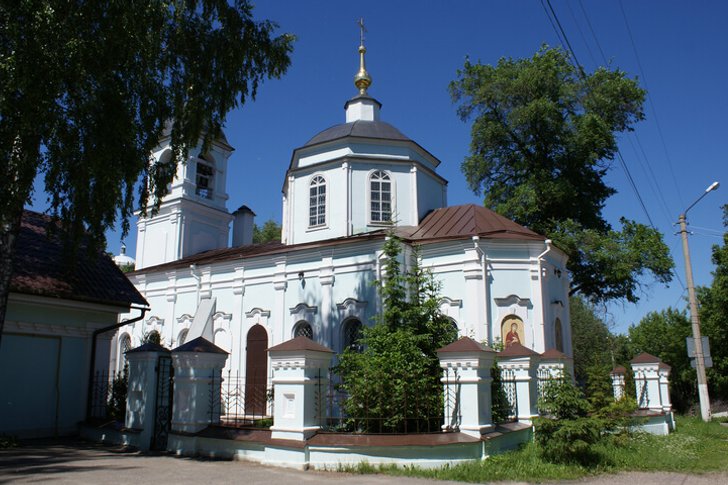
Vvedenskaya Church
First mentioned in manuscripts of the 17th century. The building was wooden and was replaced with stone in the 18th century. In 1832, a three-tiered bell tower was built, and subsequently another “floor” was added to it. The original decoration of the temple was very rich. During Soviet times, the church was not closed. Among the relics are valuable icons, personal items and a strand of hair from the vows of Hieromartyr Seraphim.
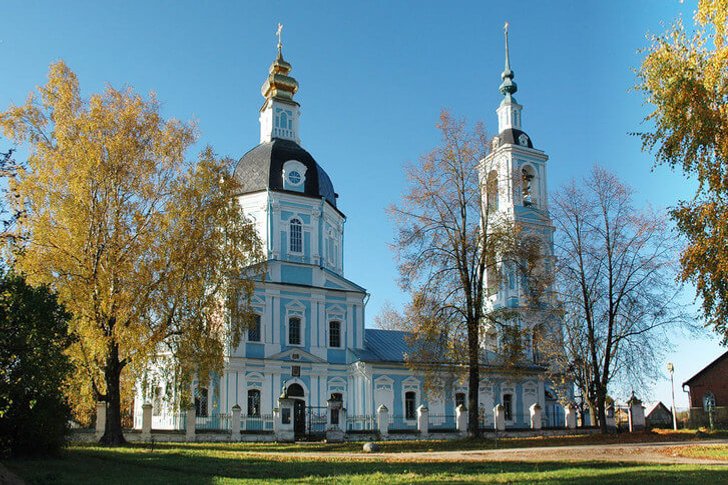
Trinity Church
Recognized as a monument of architecture and history. It was erected at the turn of the XVIII-XIX centuries. The building plan includes a refectory and a bell tower. The architectural style is a mixture of baroque and classicism. After the revolution, the temple was closed. It gradually deteriorated and remained inoperative until 1996. The bells rang again after the reconstruction. The greatest value is the Tikhvin Icon of the Mother of God.
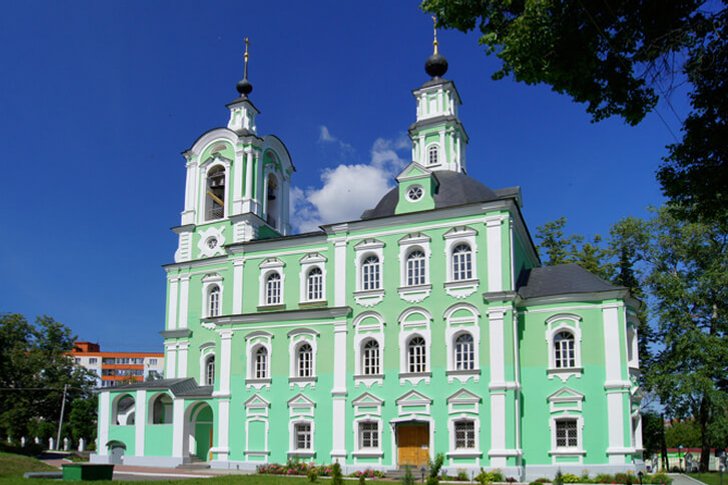
Sretenskaya Church
A wooden church was built on this site in the 17th century. It fell into decay without outside help, and after the victory in the war of 1812, it was decided to build a new temple here. The idea was sponsored by local merchants. Two years later, the church received its first parishioners. In Soviet times, all valuables were taken out, the building itself was taken as a warehouse for grain. In 1992, he was returned to the Russian Orthodox Church. Now the temple is active.
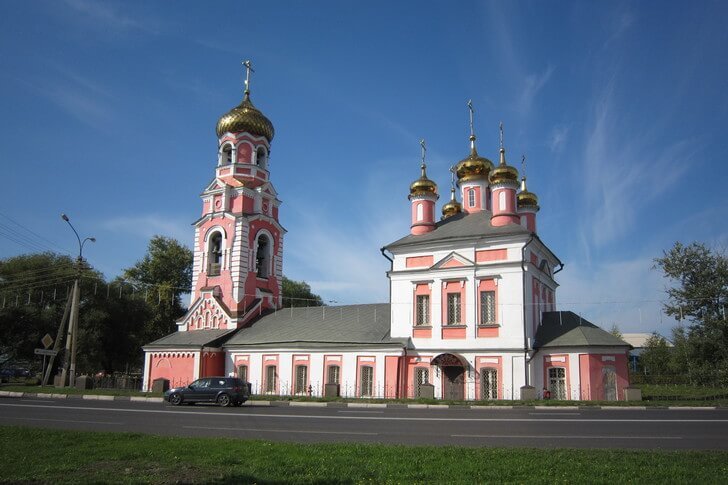
Nikolo-Peshnoshsky Monastery
Based in Yakhroma. The monastery was founded by one of the disciples of Sergius of Radonezh in 1361. Two centuries later, the heyday of the monastery began. The monks provided for themselves, thanks to trade, and they were also given money by representatives of noble families. In Soviet times, the monastery was closed, and some of the buildings were given over to museums and a home for the disabled. It has been active since 2007.
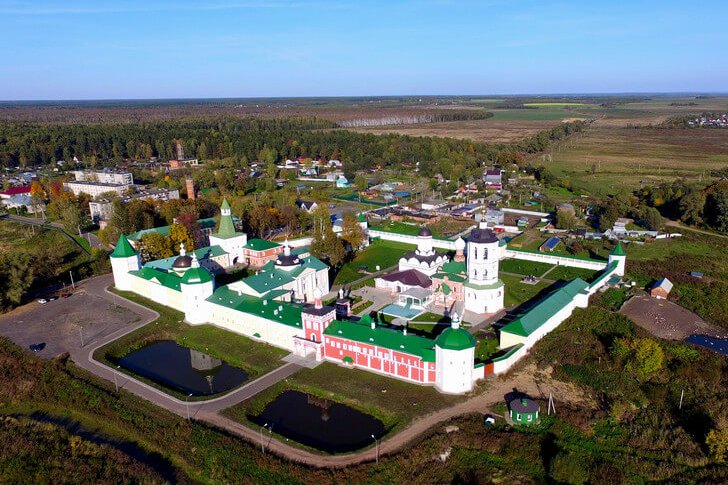
Railway station building
Although the building was built in 1887, the station did not open until 13 years later. The project is typical for central Russia. However, the design lacks towers and spiers, which is uncharacteristic of other similar objects. On the right - suburban cash desks, on the left - the waiting room. Attentive tourists can see traces of ancient Russian architecture in the architecture. However, repairs and modern painting have reduced such details to a minimum.
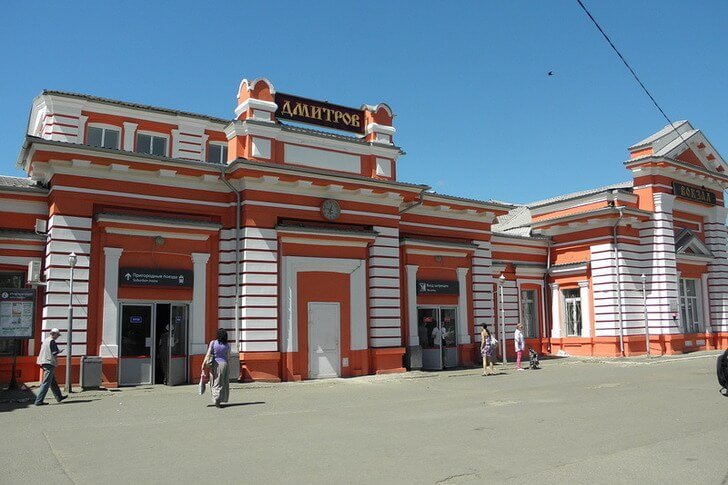
Birch Grove Park
The creation of the park is associated with the construction of the Moscow Canal. Initially, there was an ordinary forest belt here. It was not until 1966 that the park received official status and its current name. The next two decades saw the design of entertainment zones, in the form of attractions. At the same time, a summer stage and a cafe were built. Already in our century, a major reconstruction took place, which made it possible to modernize the park and attract more visitors.
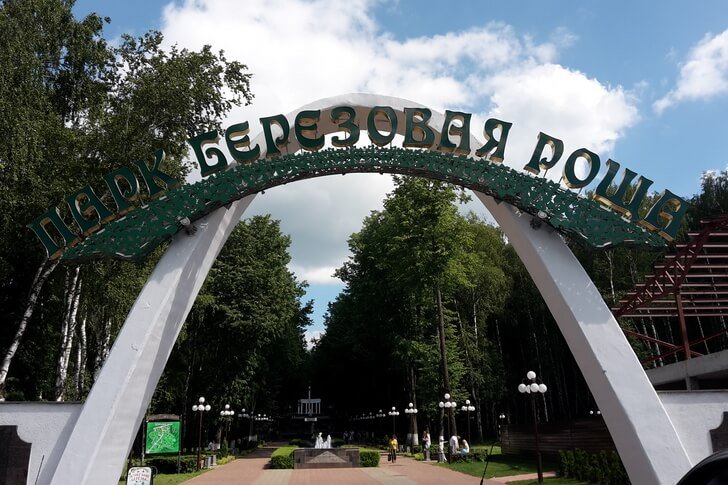
Peremilovskaya height (Yakhroma)
It is located in Yakhroma, from where it is only one and a half kilometers to Dmitrov. In 1941, battles between the Soviet army and the Nazi troops took place here. Without surrendering the height, domestic soldiers were able to prevent a direct and lightning attack on the capital. In memory of those events, a memorial was erected in 1966 - the figure of a soldier rushing into battle. The total height of the bronze monument with a pedestal is 28 meters.
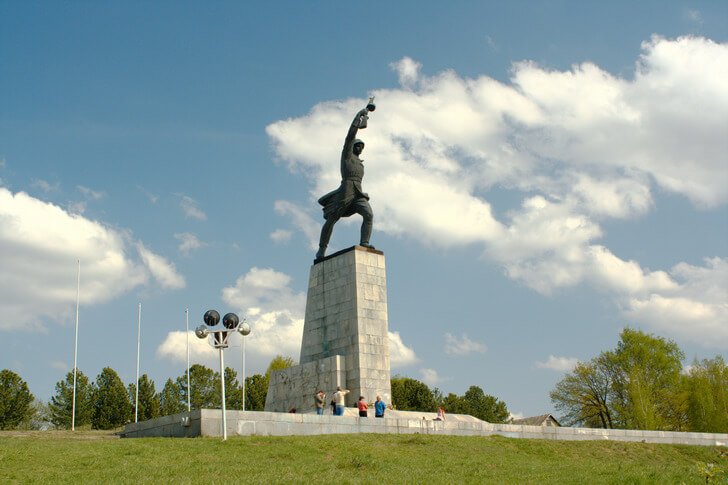
Ski resort "Sorochany"
It was built on the slopes of the Klinsko-Dmitrovskaya ridge. Due to its convenient location and reasonable prices, it is one of the most popular centers for outdoor activities in the Moscow region. In winter, several types of trails, an open-air skating rink, and a cable car are open. The season runs from December to April. The resort continues to operate during the summer. Sports grounds, rental housing, water attractions are available.
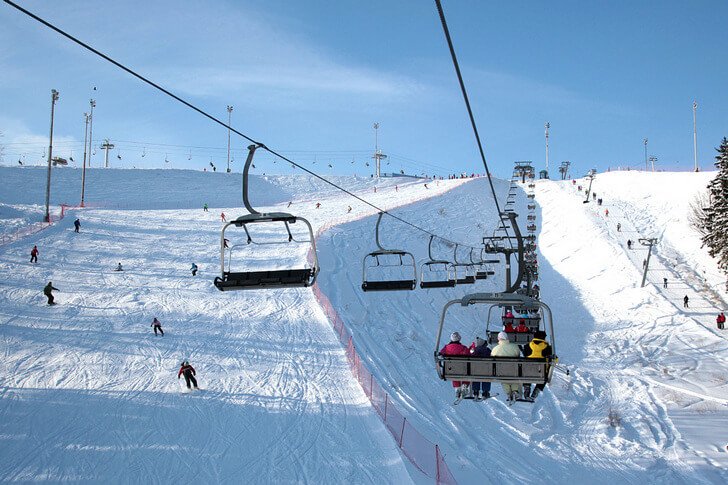
Moscow Channel
Dmitrov is located almost in the middle of the project plan of the canal. The total length of the artificial water artery is 128 km. Locks, dams, hydroelectric power stations, bridges have been erected along the entire length. And the water from the Volga "swings" with the help of special pumps. Construction took place in the 30s of the last century. Then the canal became navigable. The work was carried out quickly, and the prisoners of a specially created camp worked here.
